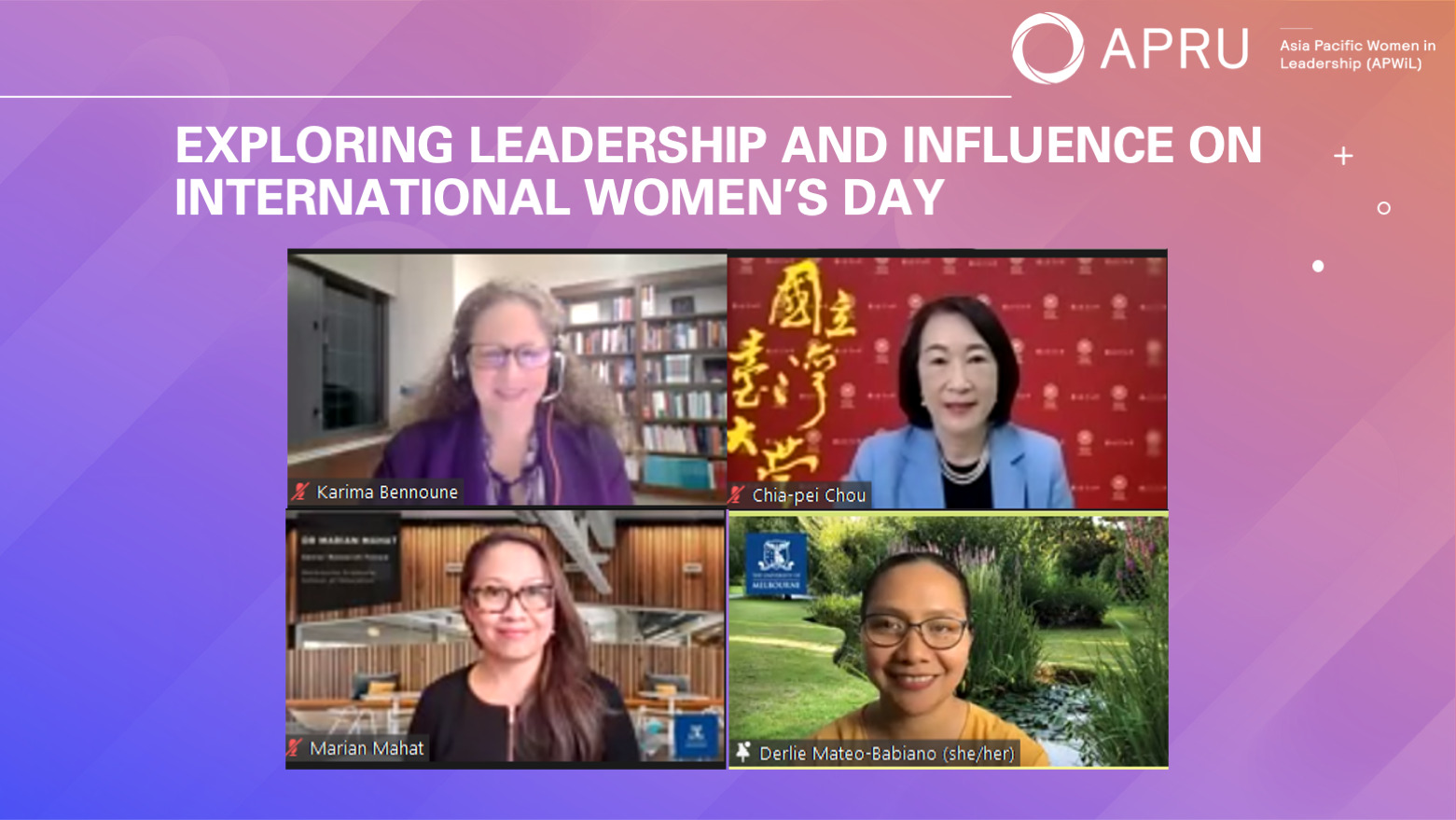The APWiL Mentoring Program reflected on International Women’s Day on March 8, featuring three female academic leaders sharing their experiences initiating change in higher education. International Women’s Day is a global day celebrating the social, economic, cultural and political achievements of women. Find the recording of the powerful event on our YouTube channel.
“The pandemic made us more reflective of who we are, where our place in the academic community is, and it made us realize how connected we are, even from afar,” said Derlie Mateo-Babiano, Associate Professor in Urban Planning and Assistant Dean, Diversity and Inclusion at the University of Melbourne.
Speaking as the APWiL Mentoring Program workshop’s moderator, Mateo-Babiano added that “it also made us acknowledge the important role that women and girls play in creating a shared path to a more gender-equal world.”
Karima Bennoune, Homer G. Angelo and Ann Berryhill Endowed Chair in International Law and Martin Luther King, Jr. Professor of Law, UC Davis, said that in the current situation with the pandemic and the war in the Ukraine, it is vital for women to build global connections. Bennoune pointed out that on International Women’s Day in 1917, Russian women demonstrated for bread and an end of World War 1.
“It is very important that we remember the lessons of history, because it helps us make the positive changes that we need so desperately need in our world today,” Bennoune said.
Bennoune drew the stories from the research she did for her book Your Fatwa Does Not Apply Here: Untold Stories from the Fight Against Muslim Fundamentalism, published in 2013.
Chiapei Chou, National Taiwan University’s Executive Vice President, for her part, described how she was trained in civil engineering, a heavily male-dominated field. During the first two decades of Chou’s academic career, she was one out of only two women among 55 faculty members.
“However, I have never felt that being a woman affects my professional life,” Chou said.
“I am a mother of two, so I have learned how to be very attentive to my students, which made me very popular with the students and helped me in my academic career,” she added.
Marian Mahat, Senior Research Fellow, Melbourne Graduate School of Education, shared her experiences of starting her PhD studies relatively late in life and then having to interrupt the studies to follow her husband to another city to further his career. Mahat has since divorced, both her parents have passed away, and her child developed mental health issues during the pandemic.
“Like most people, I struggled to find a balance between life and work, and Covid-19 made the situation even worse for women academics,” Mahat said. “But I wrote seven books in five years, and I see this as a way to give back to academia and provide an opportunity for me to connect with academics from around the world.”
One book in particular, aptly named, “Women Thriving in Academia,” sets out to empower women in academia to unite in sharing their stories, inspiring and encouraging one another.
Please visit the event webpage for more information.
About APWiL and the APWiL Mentoring Program
As leaders, the universities of APRU are committed to leading by example, addressing gender imbalances on their own turf through various initiatives. The Asia Pacific Women in Leadership Program (APWiL) aims to drive change in gender equality while taking into account the various contexts in which this pursuit for gender equity takes place across APRU member universities.
The APWiL Mentoring Program is a year-long commitment matching a mentor and mentee from one of the participating APRU member universities to provide international and intercultural opportunities for the empowerment of aspiring women leaders within APRU.

